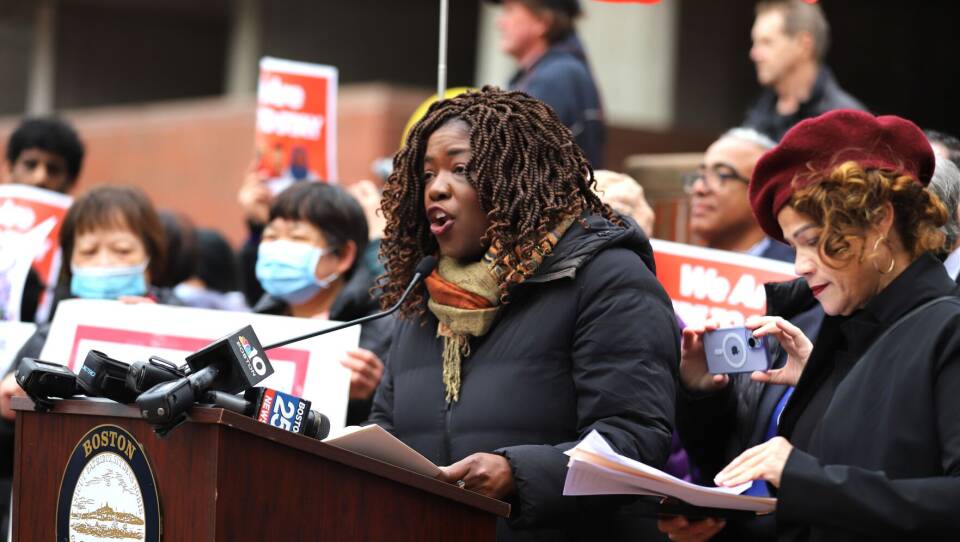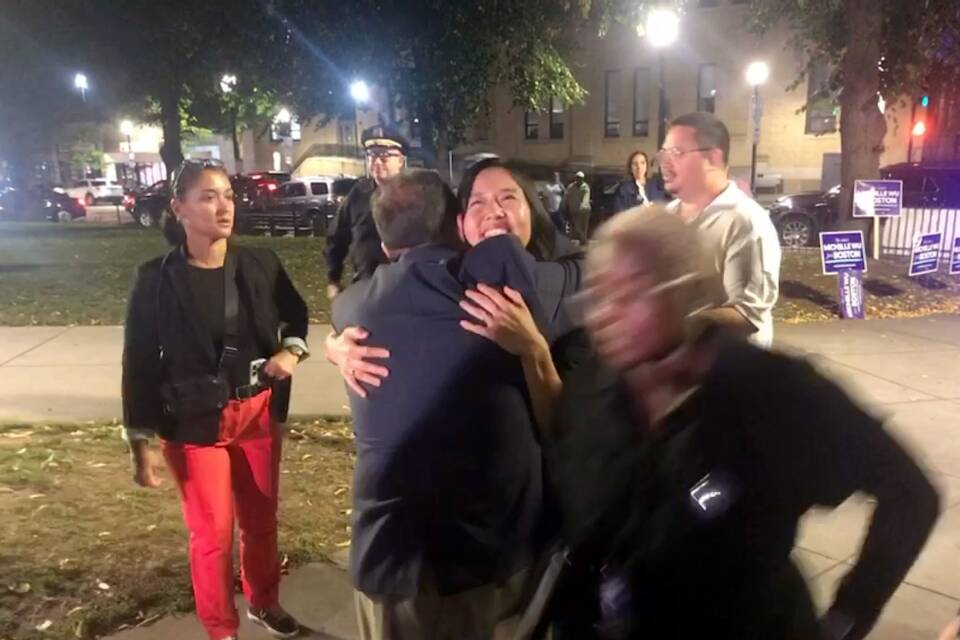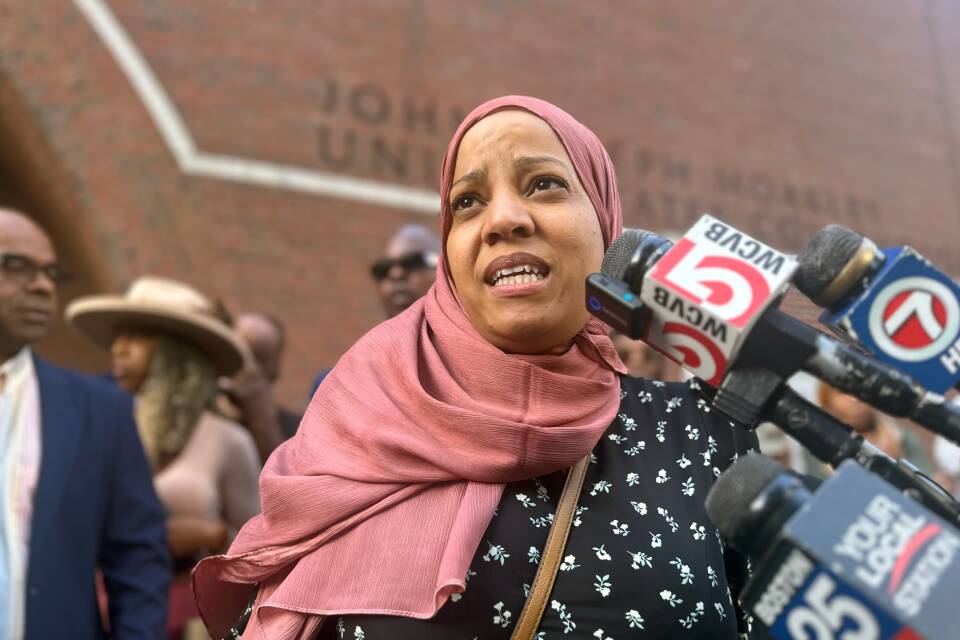Mayor Michelle Wu’s big win over Josh Kraft wasn’t the only notable story to come out of last night’s Boston preliminary elections. In the at-large race, where candidates run citywide, incumbent councilor and council president Ruthzee Louijeune topped the ticket for the second election cycle in a row.
The ability to win citywide is a hallmark of political strength, and often a sign of bigger political things to come: before Louijeune, ticket toppers have included Wu herself and now-Congresswoman Ayanna Pressley.
So might that dynamic create tension between Louijeune and Wu? It’s possible, but not likely. After all, Wu and Pressley remained allies on the council even when each was vying to win the highest at-large vote total. And there’s no guarantee Wu and Louijeune will ever actually end up running against each other.
It’s also worth mentioning that Louijeune introduced Wu before the mayor spoke at her election-night party in Roslindale, and described her relationship with the mayor as follows: “We know that our mayor cannot do it alone. We work together. It doesn’t mean we have to agree on everything — I tell people, if you agree with anyone on everything, go see a doctor. But we are aligned in a vision for Boston... There is no one that I would like to be steering the ship more than our mayor, Mayor Michelle Wu.” Those are the comments of a loyal partner, not a rival in the making.
Also notable in the at-large race: incumbent Henry Santana finished fourth and former district councilor Frank Baker, who’s attempting to make a political comeback as an at-large councilor, finished fifth out of 10 candidates, two of whom were eliminated Tuesday.
There are only four at-large spots on the council, so if Baker succeeds in November, he’ll have to beat one of the incumbents. And Santana looked vulnerable: earlier this year, he struggled to obtain enough signatures to qualify for the ballot, prompting Wu — for whom Santana used to work as director of the city’s new Office of Civic Organizing — to help him out with what her campaign described as an “all hands on deck” effort. Whether and how Wu worked to boost Santana on preliminary election night is still unclear, but according to unofficial city results, Santana garnered 30,670 votes to 26,240 for Baker.
To reiterate, Baker could still oust Santana in November, when this plot run will get a reprise. But Baker’s job may be made more difficult by the fact that he was an especially sharp Wu critic during his previous council tenure — a stance which Wu’s 49-point win suggests could simply put him out of step with Boston’s citywide electorate.
Another notable outcome came in District 7, which comprises all or part of Roxbury, the Fenway, the South End, and Dorchester and was previously represented by Tania Fernandes Anderson, who just received a one-month sentence for federal corruption charges. Two candidates advanced to the final: track coach Said Ahmed, one of two Somali-Americans who ran, and the Rev. Miniard Culpepper, a longtime faith leader and community activist.
Ahmed has already been embroiled in controversy: the Boston Globe recently reported that during early voting, he was accused of harassment by community activist Deeqo Jibril and by another campaign, that of competing Somali-American candidate Said Abdikarim, of making inappropriate attempts to convince voters to cast ballots for Ahmed. One subplot to watch as this contest unfolds: will District 7’s sizable Somali-American community vote as a monolith? Or will disappointed Abdikarim supporters respond by throwing their votes to Culpepper instead? The answer could determine whether Ahmed becomes Boston’s first Somali-American city councilor when the body’s members are sworn in next year.








